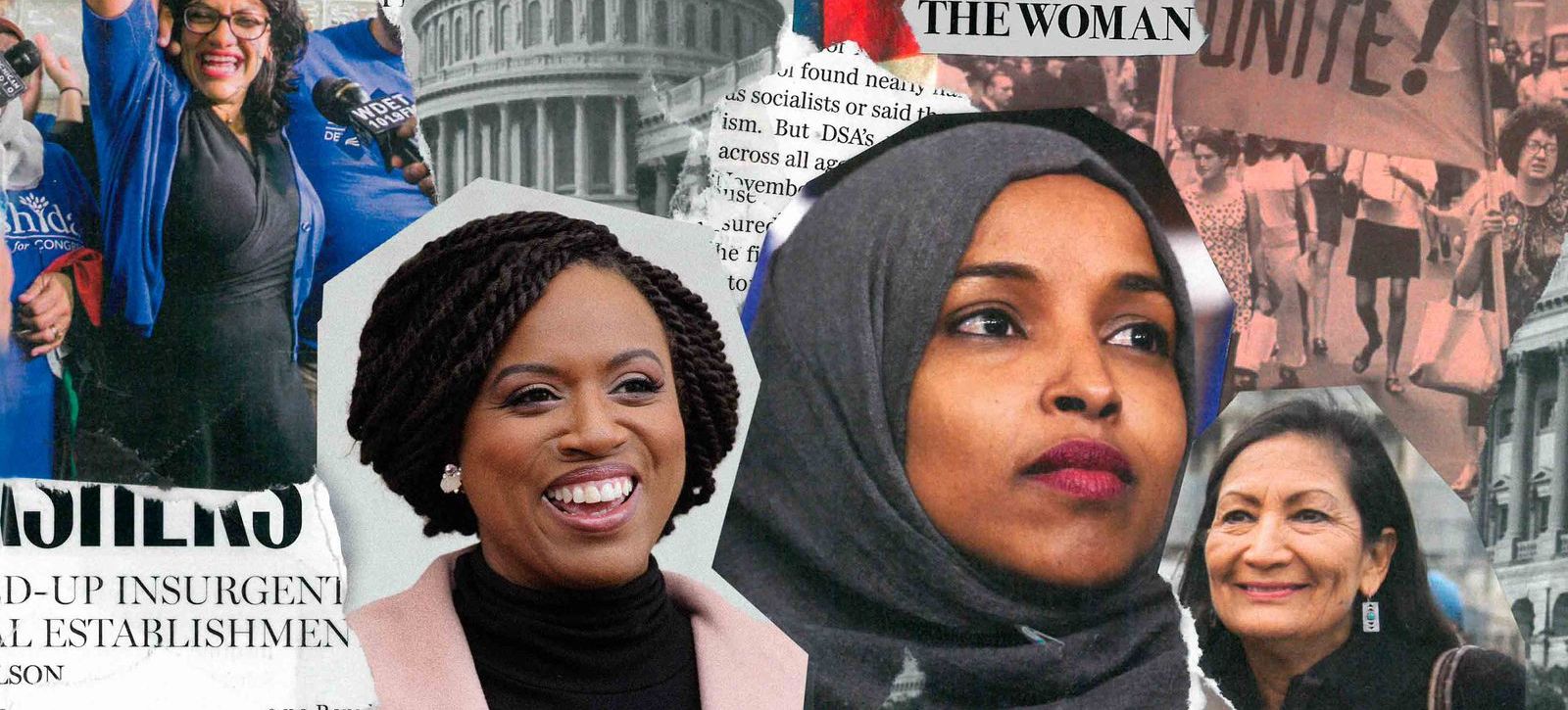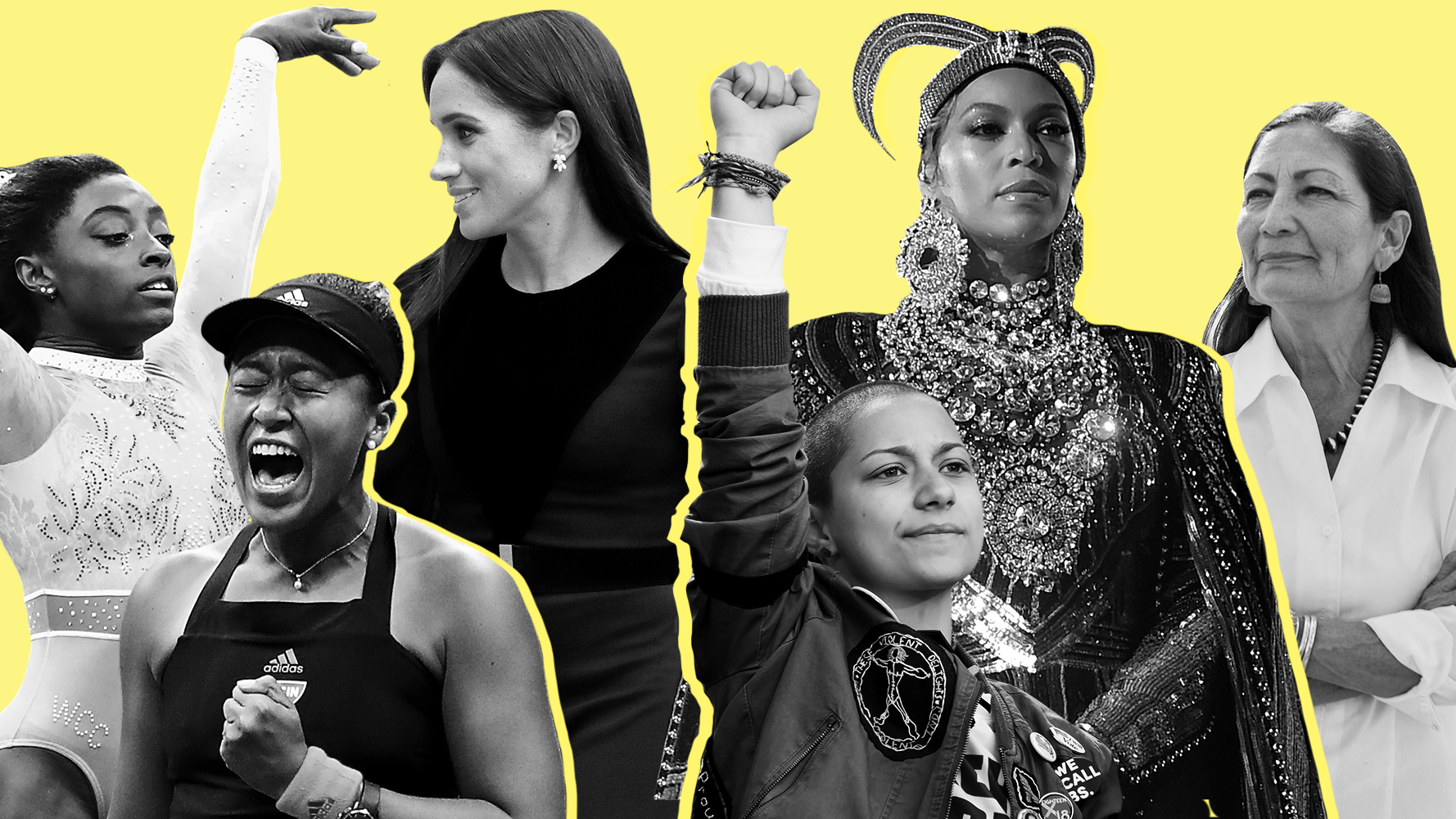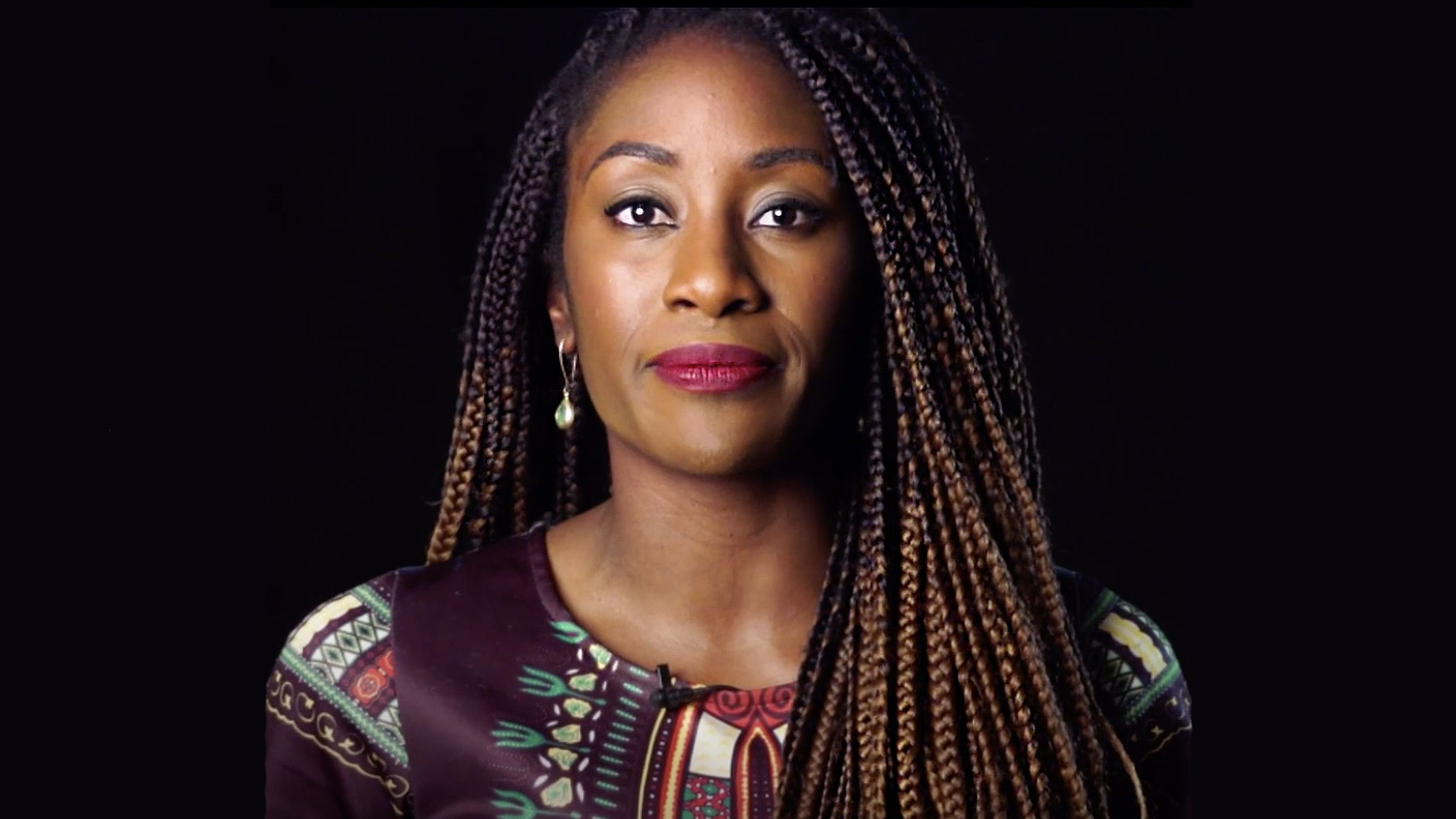Rwanda's Future Is Female
After the genocide, Rwanda had a feminist awakening. Or did it?
On paper, Rwanda is the world’s gender equality champion. The country boasts the highest percentage of women in parliament—67.5 percent—and, according to the World Economic Forum, ranks sixth for its effort to reduce the gender gap (preceded only by four Scandinavian countries and Nicaragua). More than two decades after the 1994 genocide, Rwanda's top-down policies actively enforce women’s empowerment at all levels.
Divine, Chanceline, and Bernadette are three young women from rural areas of Rwanda, born after the genocide into an entirely different country from that of their mothers and grandmothers. Yet, they all soon got to know discrimination and violence up close—an unwanted inheritance from the country’s recent past.
Only by confronting this inheritance did Divine, Chanceline, and Bernadette come to understand what gender equality in this country means. As with many others in their generation, they have started to believe in change—a change that comes from women.
Divine's Story
Divine on her wedding day.
Two airy white tents occupy what until the day before was just a plot of stark, dusty red land in Bugesera, rural Rwanda. They offer shade in the unbearable morning heat; it’s the dry season. As soon as the guests arrive, they are seated according to their party—groom on the right, bride on the left—filling each tent with dozens of sunglasses, bright suits and kitenges. A few curious kids climb on avocado trees nearby to peek through the leaves. The show is about to start.
“Thank you all for coming, we are here to celebrate the President!” begins the MC for the day. According to Rwandan tradition, a wedding isn't considered a wedding until the groom’s family asks for the bride’s hand, through the intervention of “wisemen” on both sides. A tall, gray-haired man—the groom’s wiseman—thanks the bride’s family for hosting the gathering and gifts them with a bottle of wine called Divine, like the bride.
"When you came earlier, you didn’t say which one you wanted!" jokes a voice from the bride’s tent; tradition doesn’t want them to give in easily. "Divine met someone else yesterday and we already gave her to him! But you can take her cousin Murekatete.” The microphone is passed from one hand to the other as the farce continues, until eventually the families accept there has never been bad blood between them. Innocent Ntirengaya’s request to marry Divine Uwamahoro is accepted, and so is the dowry—eight cows that have been mooing for hours in a nearby pasture.
Get exclusive access to fashion and beauty trends, hot-off-the-press celebrity news, and more.
RELATED STORY

Divine never thought she’d marry so young. She’s only 22, even though she’s already a full-time mom to 3-year-old Keza Leilla. But when Divine met Innocent at a friend’s wedding two years ago though, she knew it was love. “What hooked me is that he knew my story very well and he didn’t step back,” she remembers. “He always listened to me and accepted me as I was.”
The two finally appear in front of the guests. Behind them, a herder in traditional clothes and cowboy hat begin singing for the cows’ health, and the couple's. Both parties give blessings and take pictures.
Divine.
Divine is a child of rape during the genocide. Innocent is an orphan—he lost his father in the massacres and his mother soon after. Nearly 25 years later, the word "Rwanda" still evokes those hundred days between April and July 1994, in which the lives of over 800,000 people, mostly Tutsi, were taken by Hutu extremists. According to UN data, 95,000 children were orphaned and between 250,000 and half a million women were raped. One of them was Divine’s mother.
But Divine was born in a vastly different climate. The new "gender paradigm" sought parity in enrollment for both sexes in both primary and secondary education, while the new constitution of 2003 introduced aggressive quotas to scale up female representation in all government positions. Five years later, the tiny East African country of almost 12 million made headlines for being the first in history to achieve a female majority parliament, with 56 percent. In 2013, that figure grew to a striking 64 percent. Women became the face of the "new" Rwanda—in part due to political will, in part a direct consequence of the genocide: 94 percent of the people accused of participating in it were men, and an overall 70 percent of its survivors were women.
The 1994 Genocide
Between April and July 1994, Rwanda lived through one of the bloodiest genocides in world history. In just a hundred days, over 800 thousand people, the majority of them Tutsi, were murdered by mostly Hutu extremists. Over 100 thousand children were orphaned, and between 250 thousand and 500 thousand women were raped. The genocide was carried out during the 1990-1994 civil war between the Hutu government and the Rwandan Patriotic Front (RPF,) made up of mostly Tutsi refugees. Paul Kagame’s party, RPF, gained control of the country in July 1994, putting an end to the genocide and to the war that had made more than 2 million refugees. Kagame has been President since 2000, and has been re-elected for the third time in August 2017 with 98 percent of the votes.
At the wedding, Verena Mukashuge, Divine’s mother, sits in the third row and stares proudly at her daughter. During the genocide, Verena’s husband was killed; Verena was gang-raped by a Hutu militia at the same time as her first daughter, who then passed away after giving birth. The orphaned boy, Arthur, and Verena’s newborn daughter Divine were raised in the same home as the other children Verena had with her second husband.
“I couldn’t bring myself to love them,” confides Verena, who had sworn never to tell the children about their conception. Until the day she met another survivor.
That survivor told Verena about SEVOTA (Solidarity for the Growth of Widows and Orphans Through Work and Self-Promotion), an organization of genocide widows and children of rape, intended to support them financially and psychologically. Unlike genocide orphans, children of rape do not qualify for government assistance and many live in poverty and stigmatized by the community. When Verena joined Sevota in 2008—hoping to get some help to pay for Divine and Arthur’s tuition fees—she realized for the first time that her story was not uncommon.
“By meeting people who had gone through the same thing, I felt almost healed,” she says. “To see that complete strangers could come into our lives and care for these children really showed me the way to loving them.”
Verena.
“We had to start living again,” remembers Godeliève Mukasarasi, the founder of SEVOTA. After she saw her daughter Angelique raped during the genocide and killed after it, alongside her husband and others, Mukasarasi mobilized other women to testify at the International Criminal Court for Rwanda in Arusha, Tanzania. At the time, a rapist would receive the same sentence as someone who had stolen a cow.
Thanks to Mukasarasi's testimony, and that of hundreds other survivors, rape was for the first time declared a crime against humanity and a tool of genocide. “Sexual violence was a step in the process of destruction of the Tutsi group.. destruction of the spirit, of the will to live, and of life itself,” stated the sentence against the genocidaires in the Butare region.
It took much longer for people to understand what these words meant—even to Verena, and to Divine herself.
The Arusha Court
The International Criminal Tribunal for Rwanda was established in Arusha, Tanzania, by the United Nations’ Security Council, and played a key role in defining the concept of genocide. It was the first International tribunal to include rape in international criminal law, recognizing it as a tool of genocide. During the Arusha trial, for the first time members of the media were declared guilty of broadcasting programs that were inciting genocide, in the so-called “hate media trial.”
At 16, Divine discovered the truth by accident. She was on her way to get her national ID, and her two older half-brothers explained that she wasn’t the daughter of the man she had called her father. Cornered by the teenage girl, Verena confessed.
“Can you imagine what it means to be born from rape?” asks Divine. “I didn’t say a word to my mother for a week after I found out. Then, I treated her like a stranger for months.” Divine withdrew rapidly. “At school I didn’t talk anymore, I felt ashamed in front of my friends.” She didn’t understand what her mother had gone through. “Actually, I thought she had been unfaithful to my father. I didn’t know about rape being used as a weapon of war.” She didn’t understand her country’s history, nor her own.
RELATED STORY

As with her mom, things changed for Divine when she joined one of the many Club de la Paix organized by SEVOTA for children born from rape during the genocide. “I realized I wasn’t the only one,” she recalls. (Children born of rape during the genocide are between 5,000 and 20,000, according to official estimates.) At her Club, psychologists and educators taught kids how to use cognitive-behavioral therapy to relieve their trauma. Now Divine knows that by tapping with two fingers on her forehead, her cheekbones, her arms and wrists, she can shut out even the darkest thoughts. Simple gestures that Divine, in turn, taught her mom.
Divine is still haunted by the idea that her mother didn’t love her like she loved her siblings. Now a mother herself, she knows she has a big responsibility: “We need to be careful how we talk about this with our kids. I don’t want trauma to be the legacy I leave to my daughter."
Chanceline's Story
Chanceline singing with her band.
It’s the end of the year at the Groupes Scolaire Ntarama in Bugesera District. The kids have moved all the desks from the classrooms into the yard, opposite the soccer field. Sixty teenagers, boys and girls between 16 and 20, are all ready to start the competition. “We are able to fight!” raps Chanceline Umutoniwase, 16, singing alongside two male classmates. “We are fighters. Empowered women. We are able, we are able!”
Claude Butera, the man leading the event, works for the Rwanda Men’s Resource Centre (RWAMREC), an association engaging boys and girls in the fight against stereotypes and gender-based violence. Standing in front of the kids, he asks:
“Is the food cooked by a man any different than the food cooked by a woman?”
“No!” everyone shouts.
When people see a man doing women’s household chores, they will say he has been poisoned.
“Who has seen their father go to the kitchen and cook, raise your hand!” Butera continues.
No one raises their hand.
Butera talks about the old days in Rwanda: how rugos, the traditional huts, had a separate entrance to the house for women (it went straight to the kitchen). Women had to cook for their husbands, the only ones allowed to eat meat and eggs. Women didn’t go to school, weren’t allowed to talk in public, couldn’t give orders to the children. If they had any revenue from selling the produce they harvested, their husbands should handle it.
This patriarchal vision of society was reinforced during colonialism, under German and Belgian rule until Independence in 1961, in particular under the influence of the Catholic Church.
The Colonial Era
Prior to Rwanda being assigned to German rule, Tutsis, Hutus and Twas were not ethnicities—rather, they were castes. It was even possible for one to move from one group to another, and the three shared (and still do) language and customs. But the Belgian colonizers, with the support of the Catholic Church, divided the groups according to an ethnic criterion. In 1933, every Rwandan had to have an ethnic ID, which was later used to identify victims during the genocide. The Belgians favored the Tutsis, glorifying their "sophistication" and calling them "elected people." As soon as the Tutsi Elite gave in to the lure of decolonization, the Belgians had to break that alliance and support the Hutus as the country declared its independence in 1962. This is when the first anti-Tutsi massacres took place.
In post-genocide Rwanda, women became equal to men for the first time—at least, according to the law. In 1999, they were officially allowed to inherit property. They could open a bank account without having to ask their husbands for permission. Their daughters were encouraged to go to school, primary first and then secondary. These are some of the rights that have became known in Rwanda as “gender,” short for gender equality. But, for Butera, the hardest part is yet to come: changing the mentality.
Chanceline.
At 16, with short hair and a fierce look on her face, Chanceline wants to be an Afrobeat singer when she grows up (like her idol, the Nigerian Tiwa Savage). If that doesn’t work (“Why wouldn’t it?” she asks) she’ll join the army, like her father and another idol of hers, Rose Kabuye. Kabuye is a member of parliament, and to this day the highest-ranking woman to have ever served in Rwanda’s military as a Lieutenant Colonel, making history by leading the RPF army back into Rwanda in the early 1990s. Either way, Chanceline wants to be a strong woman "who does not depend on her husband.” It's the opposite of what she was taught.
Chanceline's grandmother raised her according to the old rules. She became the only young women in the house, and was expected to take over all the domestic chores. “My grandmother used to tell me I would have to do the girls’ chores, and that boys had to do different things," remembers Chanceline. “But I was tired, since I always had to do everything for everyone: Cooking, washing the dishes, doing the laundry...I didn’t even have time to do my homework."
At school, it was the same thing: Chanceline and her female classmates were the ones having to cook and serve food in the canteen, or stay behind to clean up after classes ended.
It was on her first day of high school, in that small building a few miles away from the border with Tanzania, that Chanceline was cornered by her new mentor with a strange question: “How many girls have two hands? And how many boys do?” While she looked at him attentively for a clue, the mentor, who had been trained by RWAMREC, simply replied: “You all have two hands! There is nothing that a girl can do with her two hands that a boy can’t with his own. And the other way around.” Chanceline liked the idea, and she began doing all the tasks that up until then had been "boys-only," such as cutting wood or herding cows.
“The boys started making fun of me and calling me a tomboy. But I continued,” she confesses, a pinch of pride in her soft voice. “I showed them I could do the same things they did.” Chanceline found the courage to do the same at home, and dared to ask her brothers for help. After a year, they finally started listening. Now, when Chanceline is done with classes and some of the housework, she can do her homework and—most importantly—rehearse the songs she’ll sing with her band on Sunday.
Abdul Khalim.
Abdul Khalim Muvunyi, a friend and neighbor of Chanceline's, had the same training at school, but his “new ideas” were not received as well at home. The 19-year-old's family lives on a small plot of land in Bugesera, a fifteen-minute bike ride from school on a dirt road. When they get home from school together in the afternoon, sometimes Chanceline stops to sit in his backyard, listening to music on her phone and singing along. Abdul Khalim, his new hoodie still on despite the heat, begins sweeping and washing the floor.
“The first time I did it, my father beat me. He would do the same if he saw me cooking in the kitchen or weaving the palms,” he recalls. But now it’s the end of the school year, and by now even his dad—who uses a cane to walk and leaves a strong smell of banana beer wherever he goes—got used to seeing Abdul Khalim help out in the kitchen, and doesn’t say anything anymore. His father lost his first wife and seven kids in the genocide, then remarried and had four kids, a girl and three boys. The eldest is Abdul Khalim. Up until a year ago, Abdul Khalim would have never even thought of helping his mother and sister with household work.
“In villages, when people see a man doing women’s household chores, they will say he has been poisoned,” explains Fidele Rutayisire, founder of the RWAMREC. His organization doesn’t just teach kids about gender equality, but also adult couples, in order to reduce all forms of domestic violence—physical, sexual and economic (wherein the woman has no say in the management of the household’s finances.) Studies on gender-based violence have shown that the bigger the gap between the husband’s and the wife’s income, the higher the likelihood that the wife will be abused by him.
The boys started making fun of me and calling me a tomboy. But I continued.
Rwanda is atypical: Here, women are usually the ones providing for the family, bringing home 88 percent of the household’s income, and should be less at risk of violence. But 34 percent of them say they've experienced physical or sexual violence by their partners. The percentage is lower than most of the region—in Uganda, for instance, it’s one out of two women. "But we still have too many men who are silent, who believe they have to be the boss of the household. The resistance we meet is from men who refuse to give up their privileges and power,” says Rutayisire. Of the younger generation, he adds, “Men are still the majority of the population. We will never achieve gender equality unless we get them involved.”
After he sweeps the floor, Abdul Khalim washes the dishes. Domestic violence, he knows it pretty well: When something goes wrong at home, his father beats his mother. One of the things Abdul Khalim learned at school is that gender equality and violence are deeply connected. That’s why he decided to become the boss of the house. He helps his sister make dinner, and every time his parents have a fight he finds the courage to intervene. “My mother understood what I'm trying to do and she is happy,” Abdul Khalim says. “She once told me if I keep on doing it, maybe one day even my father will change his mind.”
Bernadette's Story
Bernadette with her son, Christian.
Saturday morning is soccer time. Less than an hour outside of Kigali, the dusty, red field cuts across the otherwise green hill, which is covered in banana trees. Two all-female teams are playing, and a group of kids cheers for them from the little shade they can find on the sidelines. At the end of the game the players, all teen and pre-teen girls drink some cold water or pour it over each other’s heads. Some start breastfeeding the youngest in the audience. They’re all talking about the latest: A friend of theirs gave birth this morning.
The girls at Centre Marembo have very long stories for the short lives they’ve lived. Alice was raped and impregnated by a classmate. Josiane ran away from home because her mother wouldn’t let her finish school. The mother of baby Olivier was abused by her dad, making the baby both her son and her brother. Many are minors and have sexually transmissible diseases. Today, Centre Marembo, which hosts around 70 girls, is Rwanda’s only shelter for pregnant teen mothers victims of abuse and street girls.
Bernadette Kabakesha came here in 2015, when she was three months pregnant. By now, everybody calls her "Mama Christian," after her baby’s name. Her life is about starting again. Growing up, Bernadette never really had a place to call home—she was raised by many different relatives after the death of her father, and then her mother’s. She was mistreated, held back from going to school, and forced to work for the family who was hosting her. Eventually, her cousin, whom Bernadette adored, agreed to take her into her home—but then the cousin's husband raped Bernadette.
Scared to death that her cousin would find out she was pregnant with her husband's child, Bernadette decided to run away. She got on a bus, finally reaching the village she was born in, where her grandmother still lived. Together, they went to a “One Stop Centre,” one of the many police stations equipped with medical centers for victims of rape and abuse (these were created by the government in 2011). The DNA test left little doubt about the child’s paternity, and the cousin's husband was arrested and imprisoned. But Bernadette still had nowhere to go. To avoid ending up with her cousin, her abuser’s wife—an option suggested by the perpetrator’s family to grant him a lighter sentence—Nicolette Nsabimana, founder and director of Centre Marembo, gave the soon to be mother and baby a place at the center.
“The moment that changed my life was when I went to the police,” Bernadette says, with no hesitation. “That’s when I took my life back in my hands.”
Bernadette and Christian.
One in three women in today’s Rwanda has been a victim of violence, according to a 2011 report. The country’s will to fight gender-based violence sprung from the post-genocide push for the liberation of women in a "context of women with problems," as the Ministry of Gender and Family Promotion (MIGEPROF) put it. In 2008, right after surprising the whole world with its newly achieved female-majority parliament, Rwandan female MPs took advantage of their number to propose a law stating the prevention and punishment of gender based violence. It was the first time a law was ever drafted entirely in Parliament, instead of being pushed by the Executive branch, in Rwanda’s history.
In the following years—until 2011, when it finally became effective—the law helped set in motion a complex “gender machinery” destined to promote and protect women’s rights, with a dedicated ministry, a gender desk for both the national police and the army, and One Stop Centers. Equipped with police, medical and legal personnel, One Stop Centers they are meant to be places where the physical, psychological and legal implications of violence against women can be addressed and support found. Eight years since the first was opened, the country now counts 41 One Stop Centres, also called “Isange,” which means “feel at home.”
RELATED STORY

"It might sound like a paradox, but the higher the number of centers is, the higher the incidence of violence seems to be. This is because women have started asking for help,” says Godfrey Mugabo, the One Stop Centre program coordinator at MIGEPROF. But for Nicolette, Centre Marembo’s director, there is no justice until there is reparation. “With rape or gender-based violence, there is very little evidence unless it leads to a pregnancy. So it’s almost impossible for the perpetrator to be sentenced,” Nicolette continues. “The right to a support mechanism that helps you grow into a strong person and a strong citizen.”
The desk in Nicolette's office is covered in photographs and drawings of kids. The youngest guests of the center keep coming in to say hi to her, asking for a hug or telling her a secret. Everyone calls her “Mommy.” Growing up as a refugee in Burundi, Nicolette was one of eight kids raised by her widowed mother, who knew how to read and write but not much more. Still, she taught her girls how to be strong: “All five of us girls grew up envious of the privileges the boys had. But we knew that if we worked as hard as our mother we would become just as strong.”
Nicolette tried to pass on the same message to the girls at the Centre, which rather than a shelter has become a place of rehabilitation. Here, girls receive support to overcome their traumatic experiences, but also the kinds of education they never had before—a professional education, an education to become mothers, but also education about sexuality and to women’s rights. “Before coming here, they didn't even know their rights, or that they had any,” remembers Nicolette, her voice hardening. Even though they already knew that Rwanda held the world’s record of women in the government.
“The fact that so many women got into politics at an institutional level deprived civil society of its activists,” explains Pamela Abbott, Honorary Professor at Aberdeen University and a gender studies expert in Rwanda. “Many women were very politically active in the years following the genocide, but that energy was absorbed by the different government institutions,” she continues. The country's women’s rights ”leaders” have become part of the system, and aren't in a position to question it anymore.
Nicolette is one of the few women in politics who took the opposite path. She left her position at the Mayor’s office in Kigali to dedicate her life to the Centre, after meeting an 11-year-old who was breastfeeding her baby and living on the street. It's vital for her that her “alumnae,” as she calls them, will become spokeswomen for her message.
Nicolette.
Bernadette blows on the mug of hot chocolate she just made for Christian. She just finished giving him a bath in a small plastic basin that still sits on the floor. “Maybe it was the plan of God,” she says about her baby. It took her a long time to understand she was pregnant—the first few months, she thought she had worms. It took her even longer though to understand that her pregnancy was not a sin, and that she had to care about whom she was going to give birth to. “If I try to love him, he will do the same back to me."
The two share the room with three other girls and another baby — it’s only a few square feet, enough for the two bunk beds and a couple of suitcases carrying their whole lives. The two young mothers share the lower beds with their kids, while the other two girls get the upper ones. Bernadette and Chantal, her lower bed-neighbor, are laughing over their favorite movie. A Bollywood classic, it tells the story of a young orphaned girl who is mistreated by her adoptive family and eventually finds her happy ending when she runs away from them and moves in with the boy she loves.
It’s already late. Bernadette puts on a brown dress and gets ready for her vocational training, in a classroom at the Centre. She signed up for a sewing class, in which she also learned to make matching t-shirt and shorts for Christian.
Since she started working, she’s gotten it all figured out for her and her baby: She'll become a professional seamstress, make good money, buy cheap land in a rural area and wait for a big development to come in and buy it from her. Then, she'll have made enough profit to buy a big house in Kigali for her and Christian, from which she will keep running her business. “And obviously I will be an activist too, like Mommy,” she adds.
Bernadette loves making plans and looking ahead, as Nicolette taught her. So that her son won’t have to go through what she did, and they won’t have to depend on anyone to provide for them.
Illustrations by Eléonore Hamelin; photography by Caterina Clerici. This project was supported by the European Journalism Centre's Innovation in Development Reporting grant. Follow us on Instagram at @her_rwanda.
For more stories like this, including celebrity news, beauty and fashion advice, savvy political commentary, and fascinating features, sign up for the Marie Claire newsletter.
RELATED STORIES


